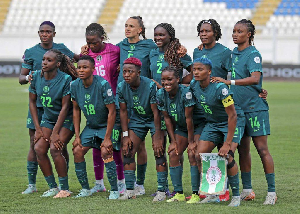The African Democratic Congress has called on President Bola Tinubu to accept the World Bank’s latest report, which reveals that 139 million Nigerians now live below the poverty line, as an undeniable verdict on his administration’s failed economic policies.
The ADC National Publicity Secretary, Bolaji Abdullahi, said the report exposed the widening gap between government propaganda of progress and the harsh realities faced by millions of citizens whose lives and livelihoods have been allegedly devastated under the All Progressives Congress-led government.
The World Bank’s October 2025 report, released on Wednesday, revealed that the number of Nigerians living below the poverty line has risen to 139 million, up from 81 million in 2019.
Reacting swiftly, the Presidency had rejected the figures, describing them as “unrealistic” and not reflective of Nigeria’s current economic situation
In a post on his official X handle, the President’s Special Adviser on Media and Public Communication, Sunday Dare, argued that the poverty data cited in the report should be “properly contextualised” within the framework of global poverty assessment models.
However, in its reaction on Thursday, the ADC accused the government of concealing its domestic economic shortcomings with manipulated statistics designed to project false images of progress while citizens continue to endure hardship.
ADC stated, “The African Democratic Congress has been studying the October 2025 World Bank Report, which states that 139 million Nigerians now live below the poverty line, up from 81 million in 2019. That figure, representing 61 per cent of the population, is clear evidence that the economic policies of the Tinubu-led APC government have actually sent more Nigerians into abject poverty, contrary to the government’s performance propaganda and claims of progress.
“The World Bank numbers tell a simple but painful story: under the APC and President Bola Tinubu’s government, more Nigerians have fallen into poverty than at any other time in our history. In 2019, four out of 10 Nigerians were poor. Today, it is, at least, six out of 10.
“We recall that President Tinubu, in his recent Independence Day address to the nation, declared triumphantly that the worst is over while bandying statistics which have now been proven to be calculated whitewash to serve the government’s narrative of progress. However, what is important is the reality that those numbers were meant to hide. Behind President Tinubu’s shiny statistics are the grim realities of historic human suffering — families skipping meals, children dropping out of school, and households selling assets just to buy food and basic drugs to survive.
“Under the APC, nearly 30 million Nigerians have now joined the ranks of the ultra-poor — those who, even if they spend every naira they earn on food, still cannot afford enough calories to survive.”
The ADC maintained that Nigeria’s current challenge requires more than superficial reforms, stressing that the nation needs a government committed to prioritising the people and recognising that inclusive growth is a deliberate and practical strategy, not just a political slogan.
It continued, “While the government celebrates record revenue collection and the illusion of economic stability, the World Bank’s data shows that Nigerians are actually growing poorer by the day. Food inflation has gone through the roof, with the price of a bag of rice multiplying five times in just four years. Poor families now spend roughly 70 percent of their income on food, leaving nothing for rent, school fees, or medicine.
“The so-called social safety nets that should protect the vulnerable have also collapsed. Coverage has fallen from 20 percent in 2019 to just six percent in 2025. The government’s support for the poorest citizens is almost non-existent, amounting to a mere 0.14 percent of GDP compared to a global average of 1.5 percent.
“What all this means is that Nigerians are worse off under the APC and President Bola Tinubu’s government. And contrary to the President’s claim, the worst is not over; instead, it appears that the worst has actually not arrived. Rather than continuing to dig in to defend its propaganda, the government should accept the unbiased verdict from its partner, the World Bank, and try to make amends before it is too late.
“To make matters worse, the government’s entire approach to poverty measurement now seems designed to flatter itself rather than to help the poor. Nigeria’s domestic poverty threshold, roughly N137,000 per month, or about $90, sits far below the global real-value benchmark. By using a deflated local measure, the government effectively undercounts millions of poor Nigerians.”
The ADC urged the Tinubu-led government to stop boasting about revenue gains and instead focus on food security, job creation, and social protection for the 139 million Nigerians hurt by its poor economic policies.
General News of Friday, 10 October 2025
Source: www.punchng.com













